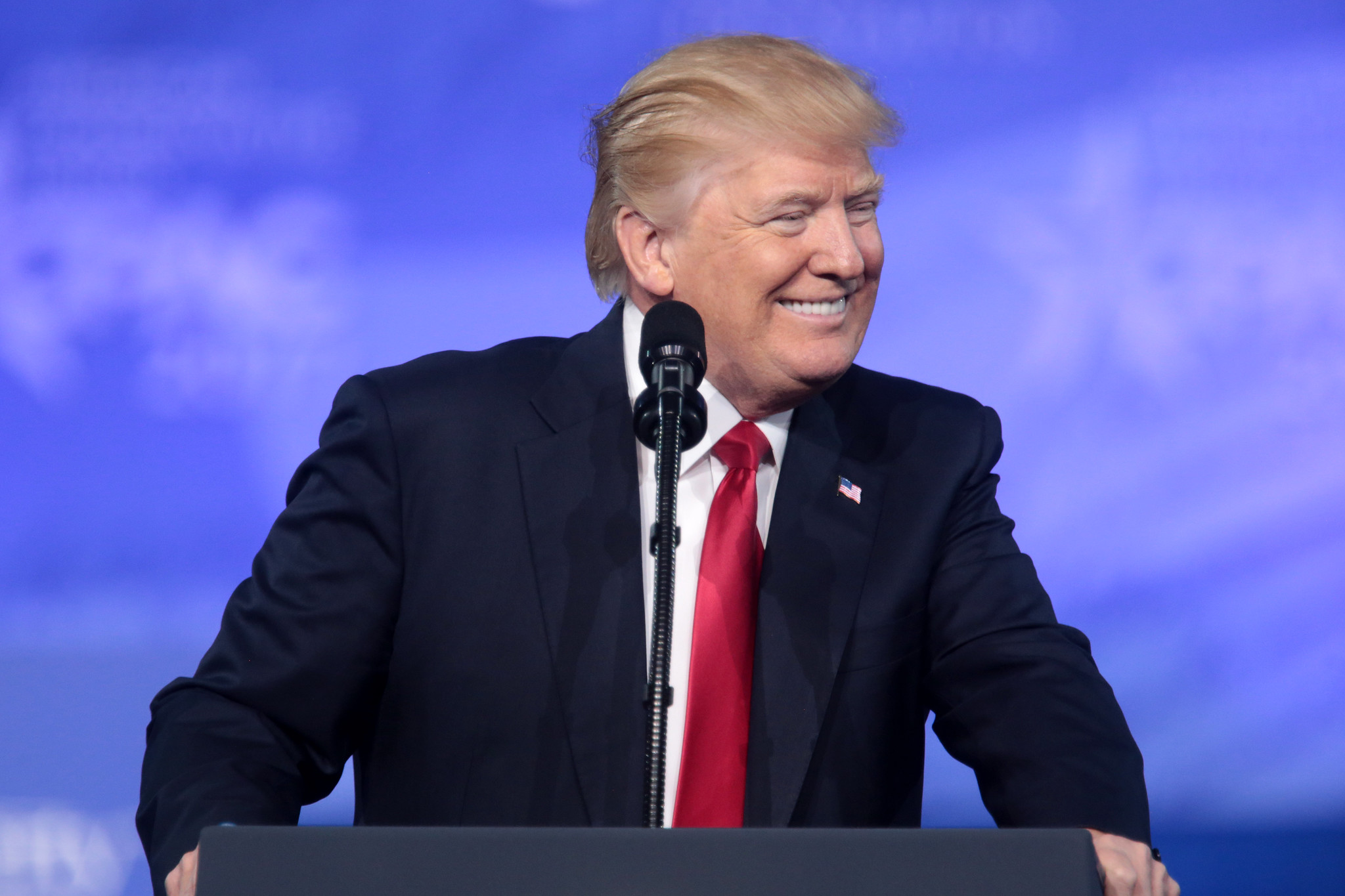Instagram has removed videos featuring former President Donald Trump, citing its "spam" policy. This action has raised eyebrows and sparked conversations about the implications for political discourse on digital platforms.
The specific incident that triggered this controversy involves a video of Trump speaking at a Jewish fundraiser in Deal, New Jersey, on Sunday. The video, which had garnered significant attention, was taken down by Instagram, leading to accusations of bias and suppression of political speech.
Instagram, a subsidiary of Meta Platforms Inc., defended its decision by pointing to its policies designed to combat spam and misinformation. According to the platform, the video violated guidelines to prevent the spreading of deceptive content. However, critics argue that the removal of Trump's video is a blatant example of political interference, especially with the 2024 presidential election on the horizon.
This incident is not the first time Trump has faced challenges with social media platforms. Following the events of January 6, 2021, several major platforms, including Twitter and Facebook, suspended Trump's accounts, citing risks of incitement to violence. While some restrictions have been lifted, the relationship between Trump and social media companies remains tense.
Removing the video from Instagram has prompted a strong reaction from Trump's supporters and allies. They contend that such actions undermine free speech and unfairly target conservative voices. The debate underscores the broader issue of how social media platforms regulate content and the potential impact on political campaigns.
Legal experts and political analysts are weighing in on the ramifications of Instagram's actions. Some suggest that the platform's policies, while intended to maintain the integrity of information, may inadvertently stifle legitimate political discourse. Others argue that social media companies are responsible for preventing the spread of harmful or misleading content, even if it involves high-profile figures.
The timing of the video's removal is particularly sensitive, as Trump remains a prominent figure in the Republican Party and a potential candidate for the 2024 presidential election. The fundraiser in Deal, New Jersey, where Trump delivered the speech, was part of his ongoing efforts to galvanize support and maintain his influence within the party.
As social media becomes an increasingly crucial battleground for political messaging, the actions of platforms like Instagram will continue to be scrutinized. The balance between preventing misinformation and ensuring free expression is delicate, with significant implications for democracy and public discourse.
In response to the video's removal, Trump's team has criticized Instagram for what they perceive as an attempt to silence the former president. They argue that social media platforms should be neutral arbiters and not engage in selective policy enforcement. Many of Trump's supporters share this perspective and see the removal as part of a broader pattern of bias against conservative voices.
The controversy over Instagram's removal of Trump's video highlights the ongoing challenges in regulating content on social media. As the debate over free speech and misinformation continues, platforms like Instagram's actions will play a critical role in shaping the landscape of political communication in the digital age.
The incident reminds us of the powerful role social media companies play in modern politics. As the 2024 election approaches, scrutiny of these platforms and their policies is likely to intensify, raising important questions about the future of free speech and democratic engagement in the digital era.



 TrumpRx.gov Highlights GLP-1 Drug Discounts but Offers Limited Savings for Most Americans
TrumpRx.gov Highlights GLP-1 Drug Discounts but Offers Limited Savings for Most Americans  Iran–U.S. Nuclear Talks in Oman Face Major Hurdles Amid Rising Regional Tensions
Iran–U.S. Nuclear Talks in Oman Face Major Hurdles Amid Rising Regional Tensions  Trump Backs Nexstar–Tegna Merger Amid Shifting U.S. Media Landscape
Trump Backs Nexstar–Tegna Merger Amid Shifting U.S. Media Landscape  India–U.S. Interim Trade Pact Cuts Auto Tariffs but Leaves Tesla Out
India–U.S. Interim Trade Pact Cuts Auto Tariffs but Leaves Tesla Out  Norway Opens Corruption Probe Into Former PM and Nobel Committee Chair Thorbjoern Jagland Over Epstein Links
Norway Opens Corruption Probe Into Former PM and Nobel Committee Chair Thorbjoern Jagland Over Epstein Links  Trump Signs “America First Arms Transfer Strategy” to Prioritize U.S. Weapons Sales
Trump Signs “America First Arms Transfer Strategy” to Prioritize U.S. Weapons Sales  Trump Says “Very Good Talks” Underway on Russia-Ukraine War as Peace Efforts Continue
Trump Says “Very Good Talks” Underway on Russia-Ukraine War as Peace Efforts Continue  U.S.-India Trade Framework Signals Major Shift in Tariffs, Energy, and Supply Chains
U.S.-India Trade Framework Signals Major Shift in Tariffs, Energy, and Supply Chains  US Pushes Ukraine-Russia Peace Talks Before Summer Amid Escalating Attacks
US Pushes Ukraine-Russia Peace Talks Before Summer Amid Escalating Attacks  Trump Allegedly Sought Airport, Penn Station Renaming in Exchange for Hudson River Tunnel Funding
Trump Allegedly Sought Airport, Penn Station Renaming in Exchange for Hudson River Tunnel Funding  Japan Election 2026: Sanae Takaichi Poised for Landslide Win Despite Record Snowfall
Japan Election 2026: Sanae Takaichi Poised for Landslide Win Despite Record Snowfall  Trump Signs Executive Order Threatening 25% Tariffs on Countries Trading With Iran
Trump Signs Executive Order Threatening 25% Tariffs on Countries Trading With Iran  South Korea Assures U.S. on Trade Deal Commitments Amid Tariff Concerns
South Korea Assures U.S. on Trade Deal Commitments Amid Tariff Concerns  U.S. Lawmakers to Review Unredacted Jeffrey Epstein DOJ Files Starting Monday
U.S. Lawmakers to Review Unredacted Jeffrey Epstein DOJ Files Starting Monday  TrumpRx Website Launches to Offer Discounted Prescription Drugs for Cash-Paying Americans
TrumpRx Website Launches to Offer Discounted Prescription Drugs for Cash-Paying Americans  Netanyahu to Meet Trump in Washington as Iran Nuclear Talks Intensify
Netanyahu to Meet Trump in Washington as Iran Nuclear Talks Intensify  Trump Lifts 25% Tariff on Indian Goods in Strategic U.S.–India Trade and Energy Deal
Trump Lifts 25% Tariff on Indian Goods in Strategic U.S.–India Trade and Energy Deal 































